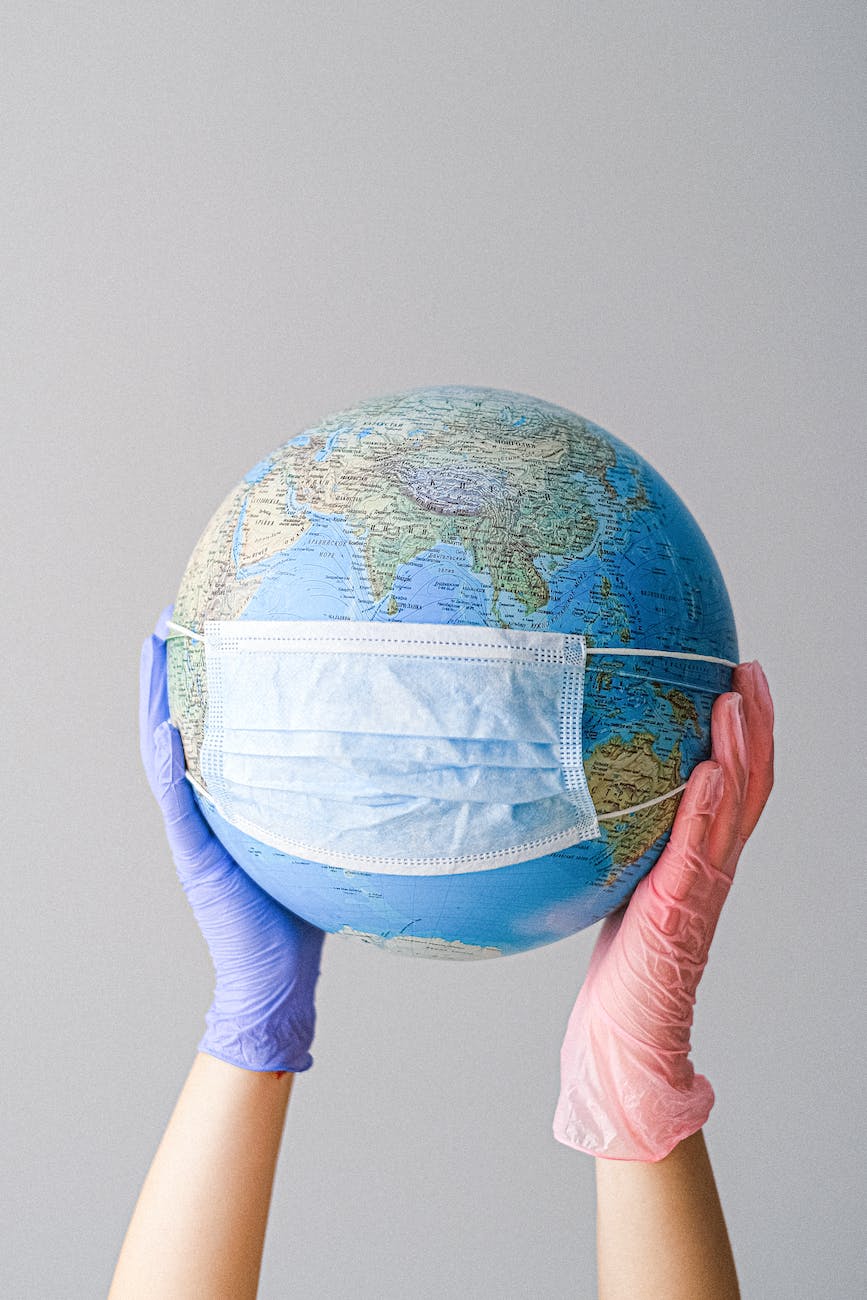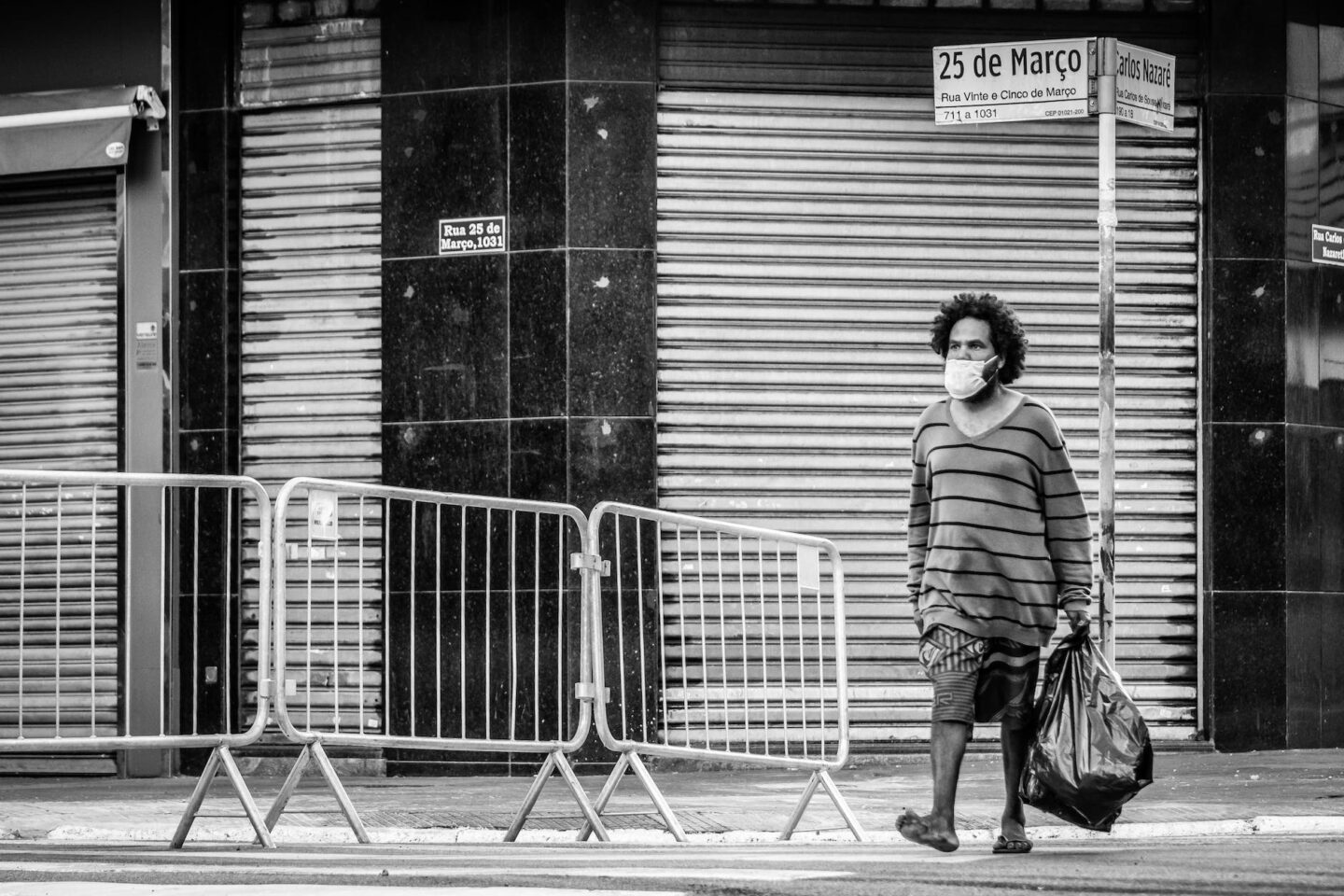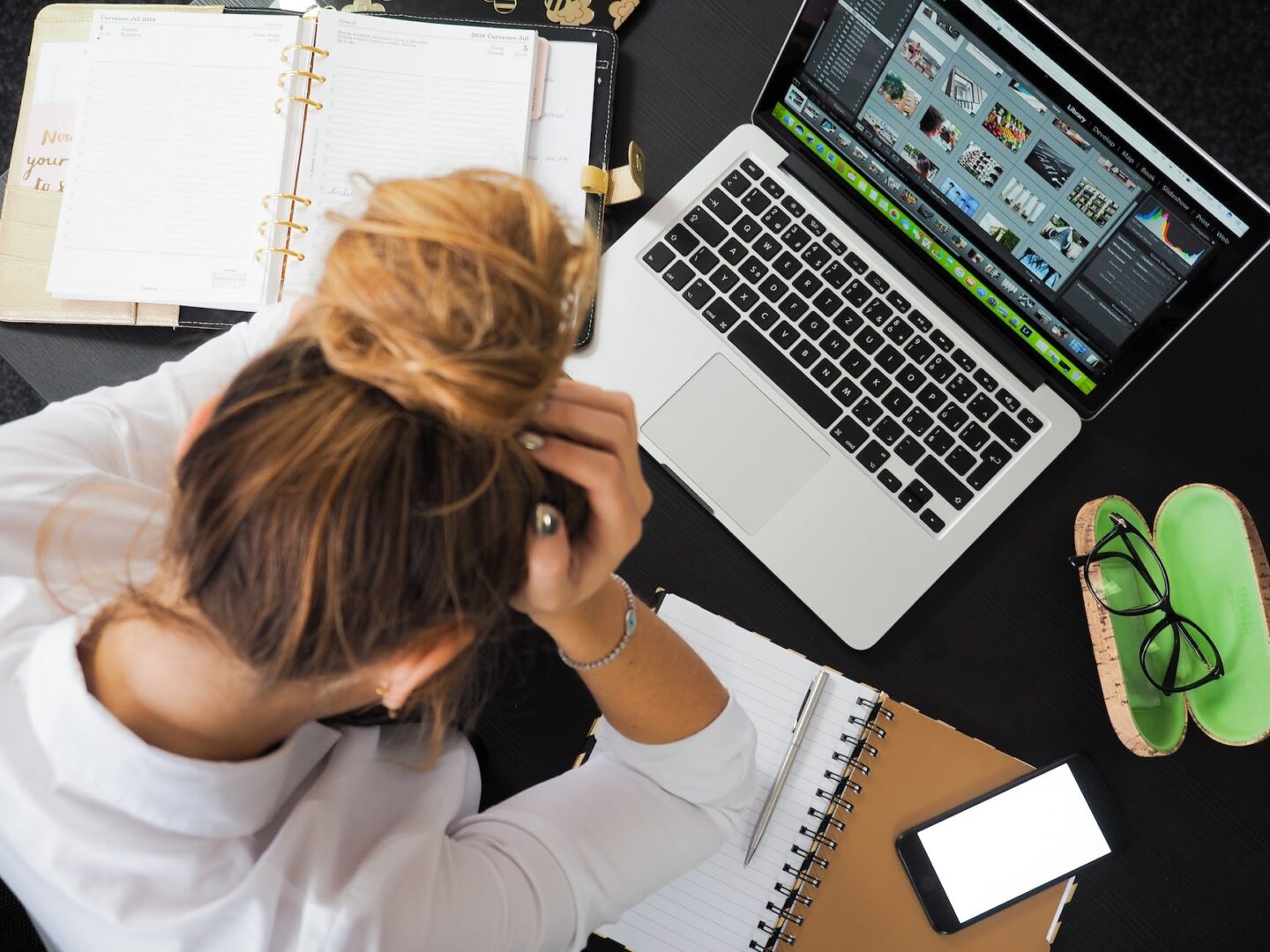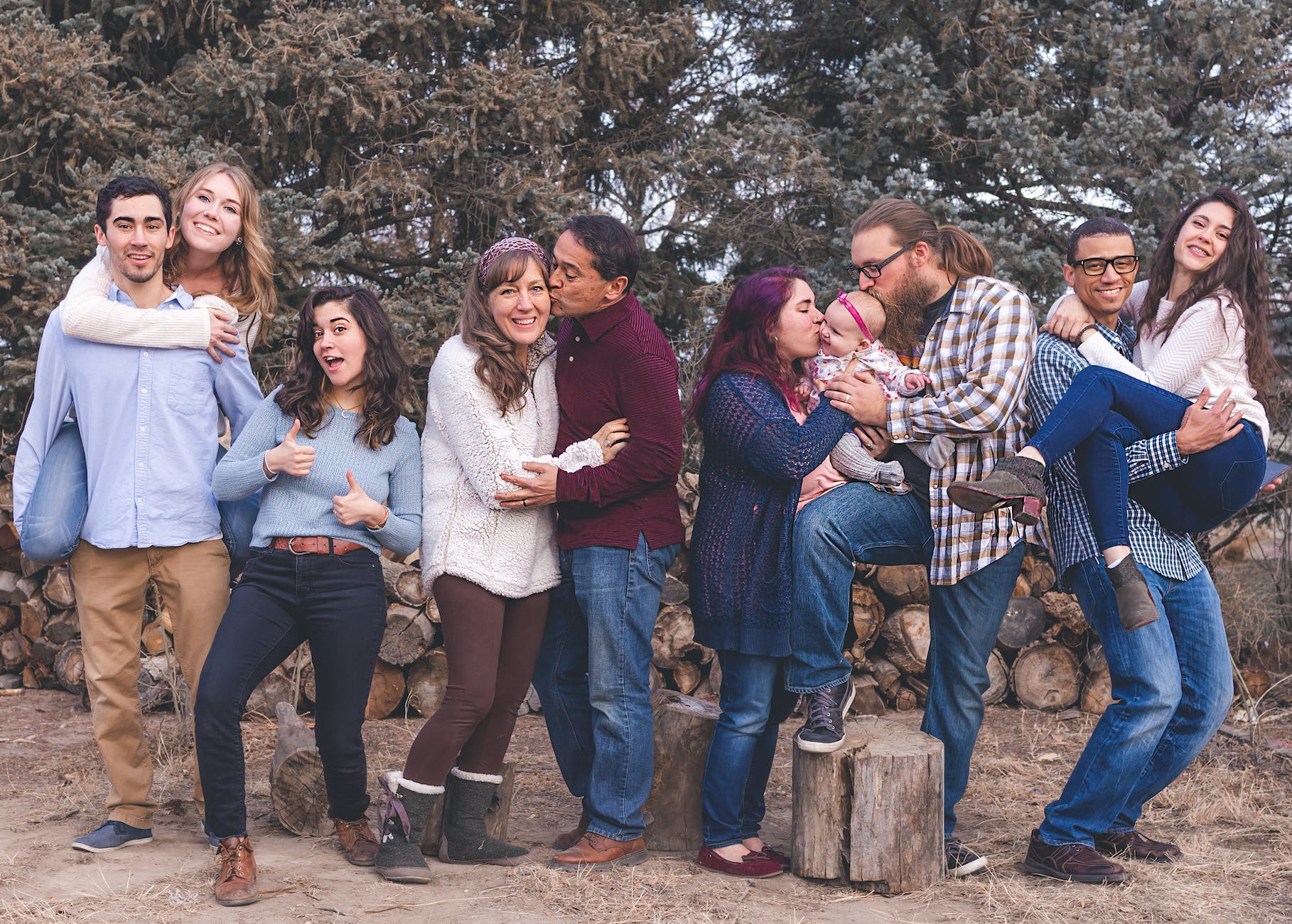Anxiety, the post pandemic pandemic

“You are Braver than you believe, Smarter than you Seem, and Stronger than you Think”
Winnie the Pooh
The world of the past has faded away, and we can only revisit it through the corridors of our memories, never to physically return. To claim that the past doesn’t influence us is a significant understatement. Our history has played a vital role in shaping us into the individuals we are today. Nevertheless, it is within our power to determine how we move forward, armed with strength and unwavering perseverance.
Recently, as I was in another state visiting my brand new grand baby, I woke up feeling like Thor’s hammer hit my head. Babies are bundles of joy, but my visit turned into a migraine-fueled nightmare. I decided to make the trip to the local ER. As I stumbled in the door, like a new baby calf on unsteady legs, the words “panic attack” stumbled from my mouth, without even a thought. Next thing you know, I was locked up in a psych room, like a prisoner, with no pain relief or proper medical care.
This was a wake-up call for me. I could not believe how differently mental health patients are treated. It’s time we give it the respect it deserves. It’s time to talk about the rise in mental health issues, post pandemic, in order to create a sense of “normalcy”, for those going through it, and to create awareness and understanding for those fortunate enough to not have to live it.

The COVID-19 pandemic has undeniably left an indelible mark on our lives, changing the way we work, socialize, and even think about our health. While the physical health impacts of the virus have been well-documented, it’s essential to shine a light on another silent pandemic that has been quietly on the rise—anxiety.

The Unseen Consequences
The world watched as COVID-19 spread like wildfire, affecting people’s physical health, and the fear and uncertainty that came with it took a toll on mental health. The global lockdowns, social isolation, and constant barrage of pandemic-related news triggered feelings of anxiety and uncertainty in many.
As restrictions ease and life begins to return to a semblance of normalcy, a new reality has emerged: A failing economy. For some, the return to pre-pandemic routines has brought a fresh wave of anxiety, while others continue to grapple with the lasting impacts of the pandemic on their mental well-being.
Throughout the pandemic’s duration, numerous adults have experienced symptoms aligning with anxiety and depression. In early 2021, about four in ten adults reported such symptoms, according to the statistics provided by kff.org.

Understanding the Factors
Several factors contribute to the increase in anxiety post-COVID:
- Uncertainty: Despite progress in vaccination efforts, the virus remains a part of our lives. The unpredictability of the situation and fears of future variants can contribute to ongoing anxiety. This ongoing unpredictability, coupled with the persistent fears of potential future variants, serves as a breeding ground for anxiety. Intensifying this unease are the difficulties associated with the scarcity of easily accessible supplies at stores, fostering a fear that this situation might exacerbate, ultimately resulting in bare shelves in our pantries and medicine cabinets.
- Social Reintegration: After months of social isolation, the prospect of rejoining social gatherings and resuming face-to-face interactions can be overwhelming for many. After enduring months of social isolation, the thought of rejoining social gatherings and returning to face-to-face interactions can be profoundly overwhelming for many.
- Economic Concerns: Job insecurity and financial strains caused by the pandemic continue to be a significant source of anxiety for individuals and families. Economic worries persist as a pressing issue. The pandemic-induced job insecurity and financial burdens remain a substantial source of anxiety for individuals and families. This concern extends to small business owners who, struggling to find employees, are forced to reduce operating hours, subsequently diminishing their income and adding to the economic stress.
- Health Anxiety: The heightened focus on health and hygiene during the pandemic has led to increased health anxiety for some people, worrying about every cough or sneeze. This heightened health consciousness has also affected medical professionals, who now face the challenge of delivering care in a post-pandemic world that often seems less comprehensive than it once was. Furthermore, the concern extends beyond just the decision of whether to vaccinate or not, adding another layer of complexity to the anxiety surrounding healthcare in the wake of COVID-19.

Coping strategies:
If you or someone you know is struggling with anxiety in the post-COVID world, there are several strategies to help manage these feelings:
- Seek Professional Help: Don’t hesitate to consult a mental health professional who can provide guidance, support, and therapeutic interventions.
- Self-Care: Prioritize self-care activities like exercise, meditation, or mindfulness to reduce stress and anxiety.
- Stay Informed Wisely: Limit your exposure to sensationalized or negative news and focus on credible sources that provide helpful information without overwhelming you.
- Social Support: Reconnect with friends and loved ones, and lean on your support network for understanding and emotional support.
- Establish a Routine: Creating a daily routine can provide structure and predictability, helping to reduce feelings of uncertainty. Incorporating regular exercise into this routine is particularly beneficial for mental health, as it not only enhances physical well-being but also contributes to emotional stability.
Conclusion
Anxiety is on the rise in the post-COVID world, but it’s essential to recognize that help and support are available. The pandemic has been a challenging time for us all, and addressing our mental health is just as important as staying physically healthy. By acknowledging the anxiety that many are experiencing and taking proactive steps to manage it, we can collectively work towards a brighter, more emotionally resilient future.
You are not alone, and having concerns about the future does not diminish your worth. Yet, holding onto apprehensions about the unseen future is not only futile, as it’s yet to unfold, but it also has the potential to keep you stagnant. We are all navigating these uncertainties collectively. Take a deep breath, don’t hesitate to seek support if needed, and reach out to your loved ones, reminding them that you care.

If you or a loved one needs support, here are some resources:
1. National Alliance on Mental Illness (NAMI): NAMI is a nonprofit organization that provides education, support, and advocacy for individuals and families affected by mental health conditions. They offer a helpline, support groups, educational programs, and resources specific to depression and anxiety.
Website: https://www.nami.org/
2. Anxiety and Depression Association of America (ADAA): ADAA is a nonprofit organization that focuses on the prevention, treatment, and cure of anxiety disorders, depression, OCD, PTSD, and co-occurring disorders. They provide information, resources, and a directory of mental health professionals.
Website: https://adaa.org/
3. Substance Abuse and Mental Health Services Administration (SAMHSA): SAMHSA is a government agency that offers a wide range of resources, including a national helpline and treatment locator. They can help you find local treatment services, support groups, and community programs.
Website: https://www.samhsa.gov/
4. Psychology Today: Psychology Today has an online directory where you can search for therapists, psychologists, psychiatrists, and other mental health professionals in your area. You can filter your search based on location, specialties, insurance accepted, and more.
Website: https://www.psychologytoday.com/
5. BetterHelp: BetterHelp is an online counseling platform that provides access to licensed therapists via video, phone, or chat. They offer convenient and affordable counseling options for individuals dealing with depression, anxiety, and other mental health concerns.
Website: https://www.betterhelp.com/
6. Open Path Collective: Open Path Collective is a nonprofit network of mental health professionals who offer low-cost therapy sessions for individuals who cannot afford the full cost of therapy. It can be a helpful resource for finding affordable counseling for depression and anxiety.
Website: https://www.openpathcollective.org/
Remember to consider your specific needs and preferences when choosing a resource, and don’t hesitate to reach out to multiple sources to find the support that best suits you.
In the event of a medical emergency, please make sure to call 911 or your local crisis number.
Wishing you peace, clarity, and happiness in the future!! xoxo

These are truly impressive ideas in on the topic of blogging.
You have touched some pleasant factors here. Any way keep up wrinting.
I am so glad you like the ideas. Thank you for the feedback.
I really like what you guys are up too. This kind of clever
work and reporting! Keep up the terrific works guys I’ve
added you guys to my blogroll.
I am so happy that you like the content. Thank you for the feedback. I am just starting out, and feedback is really appreciated.